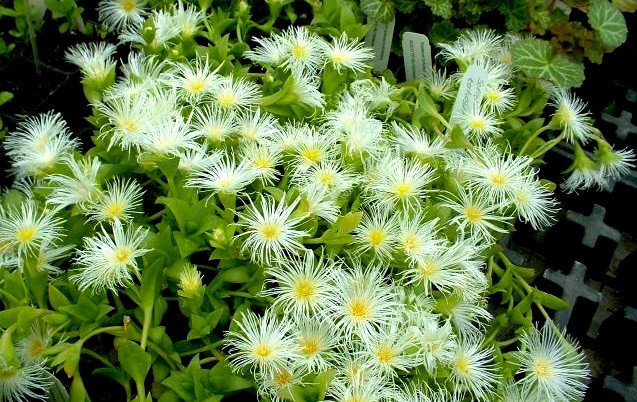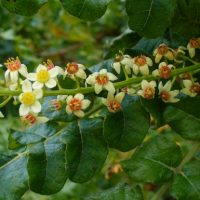Kanna (Sceletium tortuosum )

Barbara Myers, ND, MH
KANNA
A medicinal herb used in South Africa since prehistoric times, Kanna is a succulent (water-retaining) plant used to treat a wide variety of health conditions by rural peoples living in South Africa and the surrounding area. Kanna’s scientific name is Sceletium tortuosum (Latin for “something to chew”) and emerges in South Africa’s written history as early as 1660.
According to early research into Kanna, this plant contains several indole alkaloids, specifically mesembrine and mesembrenol. Mesembrine and mesembrenol appear to imitate the same effects produced by antidepressants known as SSRIs (serotonin reuptake inhibitors). In addition, mesembrine weakly inhibits an enzyme called phosphodiesterase 4 (PDE4), which has recently been identified as a major contributor to cognitive issues, depression and hypertension. By blocking the reuptake of serotonin, a neurotransmitter responsible for regulating mood, sleep, appetite and libido, kanna keeps sufficient amounts of serotonin in the brain to stop depression and anxiety. When serotonin is prevented from being released into the brain due to chemical dysregulation, moodiness, anxiety, insomnia, lack of libido and appetite problems occur.
Kanna provides the following benefits without causing negative side effects:
• Calms nerves, eases agitation produced by anxiety and chronic stress.
• Slows racing thoughts, which sometimes inhibits the ability to fall asleep.
• Relieves depression and health issues related to depression, like aching muscles, lethargy, “fuzzy” thinking, mental fatigue and migraine.
• Has appetite-suppressant qualities when taken in higher doses.
• Some South African people use kanna to relieve toothaches by plugging a cavity with a wad of kanna leaves.
Since only a few of kanna’s alkaloids have been classified, some as-yet-detected analgesic alklaloids may provide remarkable, pain-relieving abilities that are not yet officially documented. A higher dosage of kanna provides stimulatory properties that infuses the user with energy and a sense of well-being and optimism. In addition, kanna is non-habit forming and does not affect areas of the brain involved in the addiction process, in contrast to prescription antidepressants or pain relievers that carry a strong risk of addiction when
used for even short periods.
ABC (American Botanical Council) Herb Clip
Medicinal Plants of South Africa – Kanna
Journal of Ethnopharmacology – Psychoactive constituents of the genus Sceletium (kanna)
 Previous Post
Previous Post Next Post
Next Post

